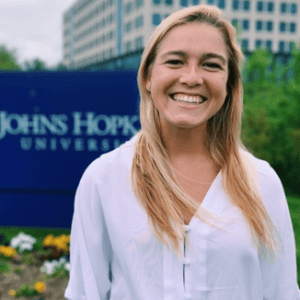Title : The lived experience of navigating alcohol use disorder rehabilitation A: A qualitative study investigating barriers, facilitators, and attitudes among the unsheltered population that influence engagement towards rehabilitation
Abstract:
Introduction: Alcohol use disorder (AUD) is highly prevalent among the unhoused population and an estimated 29%-63% of homeless individuals are personally impacted by this disease.2 As the effects of alcohol further perpetuate cycles of homelessness, alcohol rehabilitation in this population is an important area of research. Although treatment centers and services exist, many unhoused individuals are not utilizing or engaging with these programs. To date, little data exists on the lived experiences of alcohol abuse and what navigation of rehabilitation looks like from the perspective of unhoused individuals. Due to this gap in knowledge on structural and behavioral factors that guide engagement with alcohol treatment systems, a patient-centered understanding through the lens of individuals with lived experience may help various layers of the healthcare rehabilitation network to better engage and care for these patients.
Methods: ?People experiencing homelessness with AUD currently enrolled in a residential substance-use rehabilitation program (N=19) participated in a detailed semi-structured interview to understand their perspectives regarding the intricacies of navigating rehabilitation, facilitators and barriers to their engagement in AUD recovery, personal lived experiences contributing to their AUD, and their attitudes that guide their interaction with various layers of the healthcare recovery system. Interview transcripts were analyzed using Nvivo software, and an open-codebook was created using reflexive thematic analysis.
Results: Frequently described barriers to AUD treatment initiation, navigation, and maintenance were compiled into themes such as, “Alcohol as a method of escapism”, “Burden of navigation lies on the participant”, “Gaps in knowledge and function of community resources”, and “Low knowledge on AUD medications”. Facilitators to AUD treatment engagement included themes such as, “Need for housing”, “Linkage by Good Samaritan”, “Requirement and enforcement from the legal system”, “Social Connection”, “Internal faith”, “Being a role model and productive citizen”, and “Family perception”. Attitudes that influenced engagement within the rehabilitation network included “Self-efficacy”, “Recognition of AUD risks”, “Effectiveness of rehabilitation”, “Medical mistrust”, and “Stance on medication-assisted treatment for AUD”. Prominent social determinants among participants included themes such as, “Alcohol in the household seen as normative behavior”, “Intergenerational history of substance abuse”, “Childhood trauma”, “Peer pressure”, and “Mental health comorbidities”.
Conclusions: This study unveiled the perceived structural and cognitive barriers and facilitators that guide AUD treatment initiation, navigation, and maintenance, as well as common attitudes that facilitate various levels of engagement within the rehabilitation network among people with lived experience of homelessness and AUDs. Through the generosity of participants in sharing their stories, this study can aid in informing the development of more effective alcohol-use prevention, community resource engagement, rehabilitation recruitment, and recovery adherence.
Audience Take Away Notes:
- Discover the perceived barriers and facilitators members of the unhoused community of Miami, FL feel in regards to initiating, navigating, and maintaining treatment for alcohol use disorder
- Highlight the benefits of community consultation through qualitative investigation
- To share with peers how medical students can shape their research explorations and create their own research projects from the ground up




